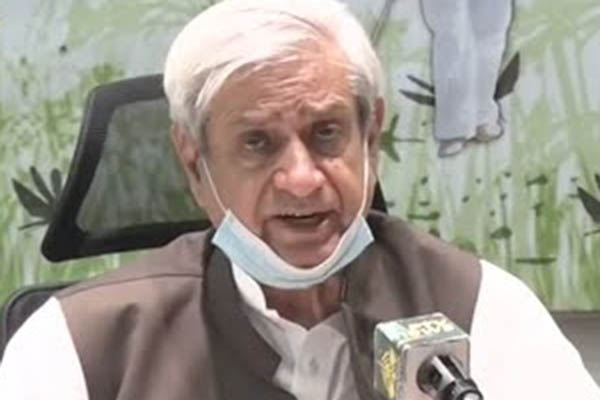
National Food Security and Research Minister Fakhar Imam. YouTube
National food security minister blames wheat shortage on international price parity and low yield
Climate change is one of the top three challenges currently facing Pakistan, federal National Food Security and Research Minister Syed Fakhar Imam said on Saturday.
Addressing a ceremony at the Muhammad Nawaz Sharif University of Agriculture in Multan, he said that various factors had resulted in Pakistan missing its wheat production target by 1,500,000 tons. “The total wheat yield was 2.5 million tons. Of it, Punjab contributed the lion’s share with 19.4 million tons while Sindh shared 3.95m tons; KPK 1.25m tons and the remainder was provided by Balochistan,” he added.
Thus far, said Imam, the government had procured 6.4m tons of wheat, including 4m tons for Punjab; 1.25m tons for Sindh; 1.2m tons for PASSCO; and 0.1 million tons for Balochistan. Khyber-Pakhtunkhwa did not procure any wheat, he said, adding the procured wheat was purchased at Rs. 1,400/maund from farmers and had been sold at Rs. 1,800-1,900 per maund in Karachi and Peshawar.
Claiming the wheat shortage experienced nationwide had been caused by an international price parity, Imam claimed that when procurement price was Rs. 1,300 in Pakistan, the international price had been set at Rs. 1,150. He alleged that wheat producers had sought to earn greater profit by selling wheat at high prices locally, and slammed them for not caring about the Pakistanis living below the poverty line.
Due to this situation, said Imam, the government had decided to import wheat. He said 4,300,000 tons of wheat had already reached the Karachi port and been forwarded to the rest of the country.
The minister said the government was planning on providing better support price to farmers to maintain international price parity, adding that recommendations on this would be submitted to the Economic Coordination Committee and the federal cabinet. He said quality seeds would improve yield and urged farmers to avoid cheap seeds.
Imam said five crops—wheat, rice, cotton, sugarcane and maize—were cultivate on 80 percent of arable land, adding the remaining 20 percent was utilized for fruits, vegetables, fodder and pulses. Noting that Pakistan imported $2.5 billion worth of edible oil annually, he said this comprised 85 percent of the country’s consumption. Of the remaining 15 percent, he said 7 percent was extracted from cotton seed as a byproduct.
He urged scientists, researchers and farmers to ensure agricultural yields could be increased for imports. “It is our policy we should improve our research for this purpose gradually,” he said, adding that universities should help students research improved yields.
Punjab Agriculture Minister Hussain Jahania Gardezi and Kissan Ittehad leader Khalid Khokhar also addressed the event, which was attended by a large number of farmers and dignitaries linked to the agricultural sector.
